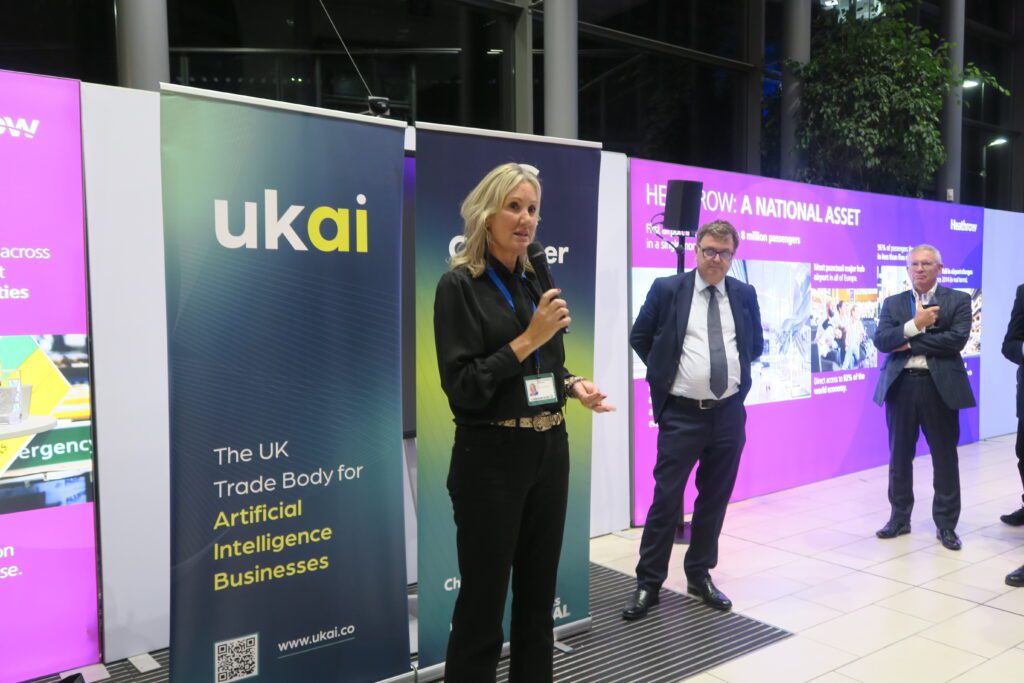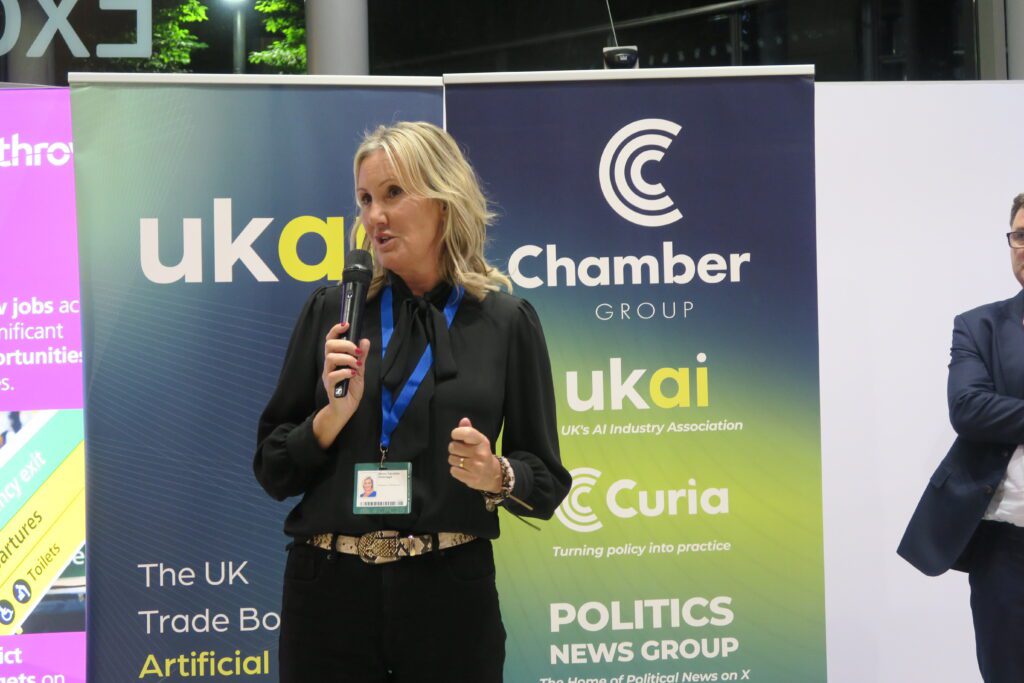At the Conservative Party Conference, the Get Britain Growing reception on October 5th featured speeches by Shadow Chancellor, Sir Mel Stride MP and Dame Caroline Dinenage MP.
Framing the arts sector as ‘our global economic superpower’ Dinenage not only underscored British arts’ contribution to GDP and ‘soft power’, but also called for a more integrated, collaborative relationship between AI development and the creative economy: a unity rooted in mutual respect, protection of intellectual property, and shared growth.
Celebrating the Arts
At the Get Britain Growing reception, Dame Caroline Dinenage MP gave an impassioned celebration of Britain’s creative sector. Indeed she has a long-standing record of championing the arts and culture, most recently serving as Chair of the Culture, Media and Sport Select Committee (formerly the DCMS Committee), which scrutinises government policy on culture, media, arts and broadcasting. Within that role she has both challenged budget cuts to the arts, and has also engaged with the government’s Creative Industries Sector Plan, pressing for stronger ambition and clarity in support, especially for smaller and independent arts organisations.
She celebrated Britain’s rich creative tradition and heritage: ‘our creative industry sector is our global economic superpower. We’re bloody brilliant at this stuff’. Not only on a domestic level, she emphasised, but internationally, the UK’s artistic scene harnesses a vast power, attracting global capital and audiences. She noted that in 2023, around £5.6 billion was spent on British film and high-end television, much of which was overseas investment – testament to the country’s world-leading cultural prowess.
‘We need to navigate a way through that maximizes the huge opportunities of AI, but also doesn’t neglect our fantastic creative industries’.
Global cultural ambassadors
There are plenteous, oft-celebrated examples of Britain’s industrial talent, symbolised in manufacturing giants such as BAE Systems and Rolls-Royce. But, Dinenage argued, the UK’s creative exports, from the Royal Shakespeare Company and National Theatre to global cultural icons like Ed Sheeran and Dua Lipa, are equally vital ambassadors of British innovation, culture, and influence.
She described this as boasting potentially ‘huge firepower’: ‘our creative industries do so much for our economy, but they also do so much for our soft power around the world’.
‘Our creative industry sector is our global economic superpower. We’re bloody brilliant at this stuff’.
A False Divide: AI and the Creative Economy
However, Dinenage lamented, the creative industries are consistently ‘pitted against’ the AI sector. She feels that this does not need to be the case: to her, it is ‘deeply unfair’ and frustrating. She insisted that the arts have always been early adopters of technology, actually very in touch with its rapidly moving developments – she cites language dubbing in films as an example of AI harnessed for creative endeavour. By not maximising the potential of the unity between creativity and AI, we inadvertently pit the two against each other, Dinenage insisted: the forces do not need to be warring or competitive.

A Record of Support and a Call for Integration
The creative economy and AI development, she insisted, must grow together, underpinned by strong intellectual property protections and mutual investment. The AI sector, she claimed, depends upon ‘having vibrant and solid creative industries, but also having really solid and vibrant intellectual property’ which is protected, maintaining its high-quality output.
She suggested that the government could benefit from the same sort of partnership she demonstrated during the pandemic: when she introduced the film and TV restart scheme to facilitate the continuation of British film and television through the pandemic.
Ultimately, Dinenage considers the creative sector one of Britain’s greatest gifts; but its potential can skyrocket, and the UK can unleash its full growth potential, once brought into more sustained collaboration with the AI and technology sectors.




